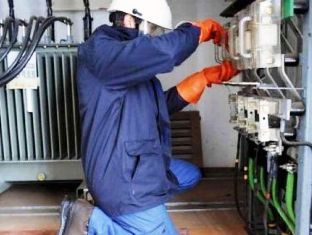Training and education of electrical personnel to prevent electrical injuries
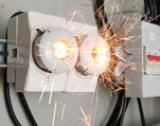 In order for the electrical installations of enterprises not to become sources of electrical injuries, it is necessary that their work be in the hands of qualified workers, in the hands of specially trained electrical personnel of the enterprise (staff of the energy service and electrical personnel of its individual divisions).
In order for the electrical installations of enterprises not to become sources of electrical injuries, it is necessary that their work be in the hands of qualified workers, in the hands of specially trained electrical personnel of the enterprise (staff of the energy service and electrical personnel of its individual divisions).
The law establishes that the operation of electrical installations of an enterprise with any voltage refers to work performed in conditions of increased danger. Therefore, increased requirements are imposed on both the installations and the personnel who operate them.
The rules are clearly defined: the operation of the company's electrical equipment can only be entrusted to electrical personnel specially trained for this purpose.Much depends on the qualifications of the persons who operate the electrical equipment, on the depth of their knowledge of the relevant provisions of the rules and the ability to apply them promptly and correctly in their practical work. In this regard, the most serious attention should be paid to the training of personnel for energy services in enterprises. This also applies to the training of personnel in electrical engineering.
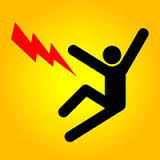 Currently, when the normal operation of the enterprise is unthinkable without the use of electricity in technological processes, the requirements for personnel serving electrotechnological installations and some electrified machines and mechanisms of workshops are increasing. The personnel who not only maintain but also repair the electrical part of such installations are equated in all rights (and obligations) with the electrical and technical subordinates of the energy service.
Currently, when the normal operation of the enterprise is unthinkable without the use of electricity in technological processes, the requirements for personnel serving electrotechnological installations and some electrified machines and mechanisms of workshops are increasing. The personnel who not only maintain but also repair the electrical part of such installations are equated in all rights (and obligations) with the electrical and technical subordinates of the energy service.
But such installations also employ personnel who only monitor the production process (operators) and use nothing but initial equipment. In this case, he must have at least a minimum amount of knowledge about electrical safety in his workplace.
In order to obtain such knowledge, this contingent of production personnel is annually instructed at the workplace with a check to assimilate electrical safety working conditions, after which they are assigned I qualification group for admission in electrical safety (without issuing a certificate, against a receipt in a special magazine). The lack of such an instruction or the formalism shown in its implementation and formalization often lead to electrical injuries.
Data from the analysis of industrial electrical injuries show that 72% of electrical injuries occurred among industrial personnel (electrical and other occupations) with secondary, lower secondary and primary education. Since half of all industrial electrical injuries occur among electricians, this figure indicates that among those injured there are a large number of electricians without special training. Therefore, the question of the need to admit to the energy service to work in the electrical equipment of the enterprise only persons with special education and then undergo serious training directly in the electrical equipment of this workshop, the enterprise where he will work, is so acute.
Causes of electrical injuries
The most common causes of electrical injuries are:
-
the appearance of voltage where it should not be under normal conditions (on equipment boxes, on technological equipment, on metal structures of structures, etc.). Most often this happens due to insulation damage;
-
the possibility of touching uninsulated live parts in the absence of suitable barriers;
-
the effect of an electric arc occurring between a live part and a person in networks with a voltage higher than 1000 V, if a person is in close proximity to the live parts;
-
other reasons. These include: inconsistent and erroneous actions of personnel, supplying voltage to the installation where people work, leaving the installation under voltage without supervision, allowing disconnected electrical equipment to work without checking the absence of voltage, etc.
It should be noted that the number of accidents in electrical installations with a voltage of up to 1000 V is 3 times greater than in electrical installations with a voltage of over 1000 V.
This is due to the fact that installations with a voltage of up to 1000 V are more widely used, as well as the fact that a larger number of people have contact with electrical equipment here, as a rule, who do not have an electrical specialty. Electrical equipment above 1000 V is less common and only highly qualified electricians are allowed to service it.
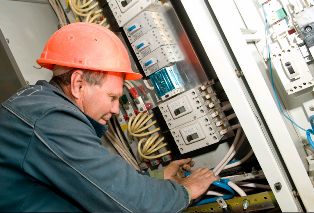
In this regard, we emphasize once again that the most important place should be given to the issue of training the electrical personnel to maintain the necessary level of operation of the enterprise's electrical equipment.
Electrical staff, of course, just the briefing is not enough. He undergoes special training with periodic verification of his knowledge of the rules and instructions. At the same time, he is assigned a safety qualification group corresponding to his knowledge and skills and is issued a personal certificate for the right to work in electrical installations.
In addition, the energy service provides constant work with the staff in the form of: briefings on various issues of its activity, analysis of individual provisions of rules and instructions, directive and regulatory materials, analysis of accidents and accidents, conducting emergency games and training and much more , which is necessary to obtain high professional training.
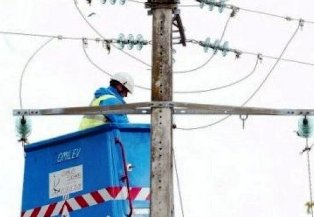
Special business surveys reveal a very different picture. As a rule, there is no constant daily work with the staff. Training is irregular.Briefings suffer from small topics, and they are conducted not in the form of a personal conversation with each employee, but in a group method, without further checking the degree of mastery of the topic in question.
Checking the knowledge of electrotechnical personnel is sometimes of a formal nature (for example, there are facts when one commission checks from 30 to 70 people in one day), and at the same time, violations of the procedure for checking knowledge and appointing safety qualification groups are allowed: testing locations, checkout registration, etc. Experience in electrical installations is not taken into account when determining a particular group. Emergency training either does not take place at all or takes place irregularly and in some cases not at the right level.
Thus, employees of the energy service (and electrical personnel in workshops), who are not equipped with an appropriate arsenal of theoretical knowledge and practical skills for working in the electrical equipment of their enterprise, and in some cases received an overrated safety group, cannot to organize and carry out assigned work safely.
Statistical data show that almost half of electrical injuries occur where the operation of electrical equipment is carried out by people who do not have the necessary knowledge for this purpose.
An even more serious violation is allowing independent work in the electrical equipment of the enterprise to energy service workers who have not passed the knowledge check according to the rules and do not have a safety qualification group that gives the right to such work.
Labor discipline is of great importance to ensure the electrical safety of workers. Among the main employees of energy services - persons with III and IV qualification groups for electrical safety admission, due to low labor discipline, a significant number of electrical injuries occur. In addition, electrical injuries in people with IV qualification group for electrical safety admission 1.5 times higher than that of persons with qualification group III.
Based on the above, the following conclusion is drawn: the health and life of most people involved in the production process, using electricity, are directly dependent on the quality of the work of the electrical staff of the workshops and the staff of the energy service of the enterprise, to maintain such a state of electrical installations by such personnel to meet all required rules and regulations.
Materials from the book "Electrical Injury and Its Prevention" were used. Authors: G.Yu. Gordon and L.I. Weinstein.

